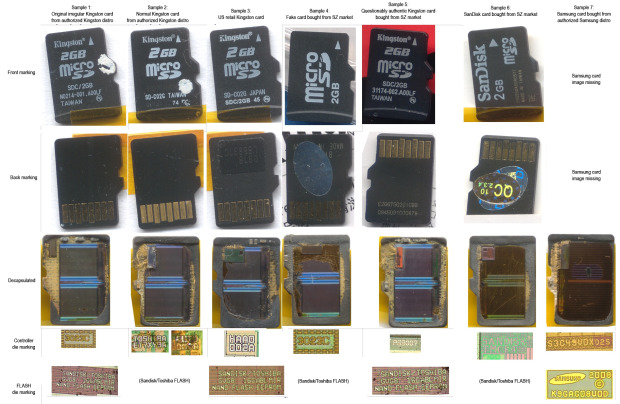Does the name Bunnie Huang ring a bell? It might if you were around the Xbox “scene” in 2002, when people from all over the world were on Xbox hacking forums trying to figure out what made Microsoft’s first console tick, so to speak. It was truly exciting—we’re talking Paris in the 50s exciting. Mr. Huang has since gotten a job at Chumby, putting his technical know-how to good use and helping to create the adorable little clock-widget-thing. While in China, Mr. Huang discovered a problem with a number of Kingston-branded microSD cards that were to be used in Chumby production. The problem was that they were counterfeit, or “irregular” in the measured parlance of the blog post.
Mr. Huang, who wrote a book detailing his experience of hacking the Xbox, tried to determine why the Kingston microSD cards were “irregular.” Is Kingston selling bum cards to paying customers? That’s what Mr. Huang tried to figure out.
The post is long and gets a little technical, but it’s nothing you guys can’t handle. You’re not USA Today readers!
Here’s the big reveal:
Significantly, Kingston is revealed as simply a vendor that re-marks other people’s chips in its own packaging. Every Kingston card surprisingly had a Sandisk/Toshiba memory chip inside, and the only variance or “value add” that could be found is in the selection of the controller chip. Oddly enough, of all the vendors, Kingston quoted with the best lead times and pricing — better than SanDisk or Samsung, despite the competition making all their own silicon and thereby having a lower inherent cost structure. This tells me that Kingston must be crushed when it comes to margin, which may explain why irregular cards are finding their way into their supply chain.
That is to say, Kingston has razor thin profit margins. It doesn’t make its own flash chips—Samsung and SanDisk do, but you can’t buy Samsung chips at retail—so it wouldn’t be out of the realm of possibility if a couple of “irregular” cards make their way into the Kingston supply. The odds of you walking into Wal-Mart and walking out with an “irregular” Kingston flash card are incredibly small, but the nature of Kingston’s business means they could be more susceptible to “irregularities” than companies that produce their own chips.
So yeah, be sure to read that whole post. Well worth the read, I’d say.
via Boing Boing
